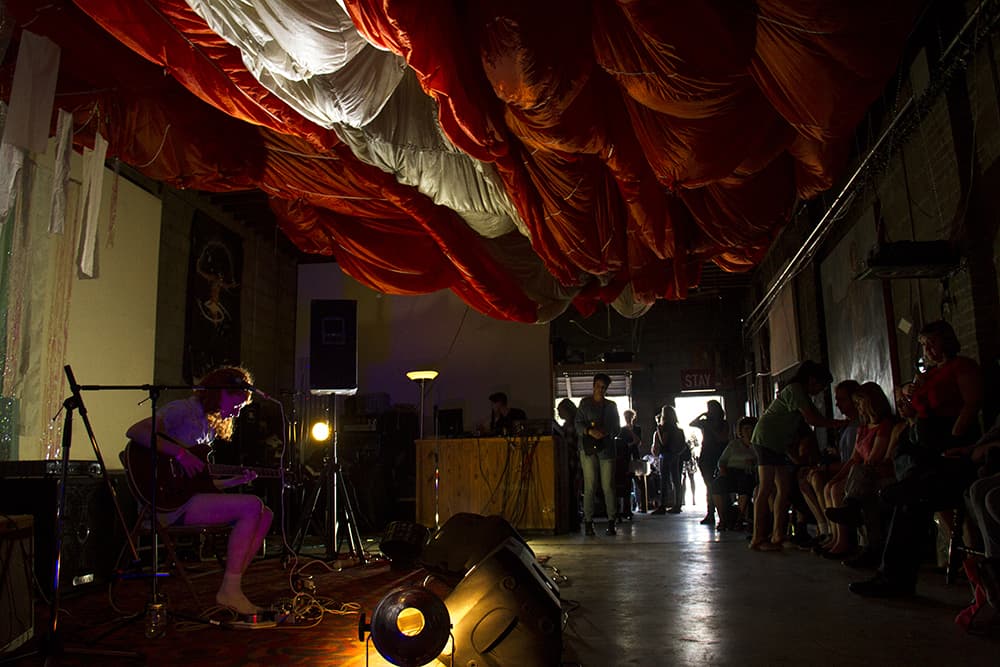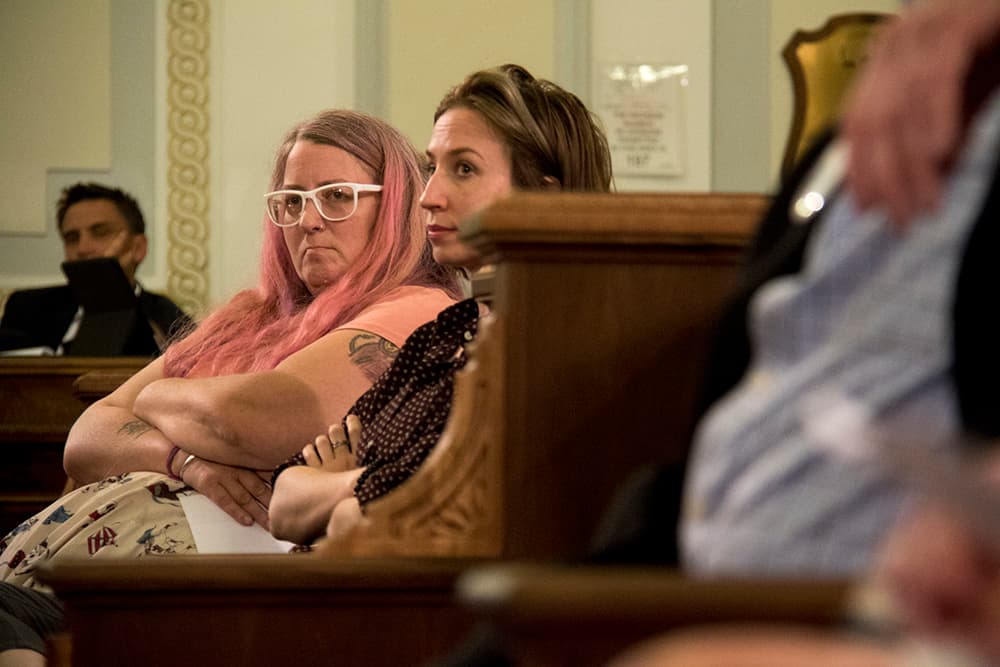
Denver City Council approved an ordinance Monday that will give people living in DIY arts spaces and other unpermitted buildings a way to legalize their buildings without losing their housing in the process. And in a concession to artists who feared eviction and other unintended consequences of coming forward, the city will give people more time to come forward and more time to complete the work.
But this victory is tempered by the question of where poor artists will get tens of thousands of dollars to renovate spaces they don't own and have no right to stay in after they do that work.
"It's about money," said Lauri Lynnxe Murphy, an artist and member of Amplify Arts, a group that formed in response to city raids on DIY art spaces. "If this is going to succeed, we need money."
The "safe occupancy" program was developed after Denver closed a number of DIY arts spaces in the wake of the deadly Ghost Ship Fire at a converted warehouse in Oakland. Murphy noted that Oakland, where the tragedy was felt most deeply, responded almost immediately with money, while Denver responded with surprise inspections that cost people their housing.
The ordinance, believed to be the first program of its kind in the country, creates a 30-month window for certain types of unpermitted buildings to gain legal status. Eligible spaces include such things as performance spaces with an occupancy of 300 people or less (but not restaurants or bars), residential living spaces with two stories or less with up to 16 units, offices, galleries, showrooms and retail spaces.
Normally when the city discovers unpermitted work, the property owner pays double the standard permit fees to come into compliance. This ordinance waives those extra fees, and it provides for an extended time frame for compliance, as well as flexibility around certain code requirements.
Most significantly, the ordinance allows for a conditional certificate of occupancy so that people could legally live in the building while the work is being done. That only applies if the code violations don't involve "life-safety hazards."
The Denver City Council approved the ordinance along with a number of amendments by a 12-0 vote. Councilman Chris Herndon was absent.
After artists packed a public hearing last week, Councilwoman At-large Debbie Ortega shepherded an agreement around a series of amendments between Community Planning and Development, the City Attorney's Office, Amplify Arts and All in Denver, an organization that brings together business and community representatives around housing issues.
The amendments extend the time to comply from mid-2019 to January 2020 and more significantly, allow for a six-month grace period to come forward.
The original version of the ordinance said that buildings that were discovered as a result of a complaint or a surprise inspection would not be eligible; only those who came forward voluntarily could apply. Under the approved amendments, buildings that were vacated since December 2016, when Rhinoceropolis and Glob were the subject of a surprise inspection, could apply and so could those discovered as the result of an inspection in the next six months.
This was a major sticking point between the city and advocates, as some city officials feared this would create an incentive for people to rush through unpermitted work now and then take advantage of the ordinance to get amnesty. Artists, in turn, argued that they need time to educate their community and raise money for repairs. They also feared the city had a list of non-compliant buildings and could raid them as soon as the ordinance passed, making those locations ineligible. While city officials insisted that was not the case and said they were acting in good faith, there is not a lot of trust between the arts community and the city.
During the six-month grace period, the city will develop a plan to educate the community and create incentives for compliance. Ortega will head up a working group that will look for funding from a variety of sources, including various business improvement districts and the RiNo Art District.
Murphy said developers should consider the value that artists bring to the neighborhoods where they're building now but that were overlooked in the past.

"Developers have been following artists around the city for decades," she said. "RiNo would not exist without artists. They owe us."
Bree Davies, a member of All in Denver and the arts community, said the ordinance is a good start.
"This is really sketchy territory for artists, but the fact that the city was willing to meet us halfway in some regards was important," she said.
Whether the ordinance will be effective remains to be seen. Both Davies and Murphy said they don't think very many people will come forward in the initial months.
There's also the tenuous issue of landlord-tenant relationships. Landlords may not want to invest money in warehouses whose value is only in their redevelopment potential, and tenants, many of whom are on month-to-month leases, have very little protection against eviction. They can be evicted for raising a safety issue about their space, and they can be evicted after investing their own money in improving a space.
"We don't have control of our spaces," said Davies, who doesn't live in an arts space herself. "It's a bigger picture than just the city and artists. It's the city, property owners and artists. ... Artists are often seen as placeholders. When land becomes valuable, everything changes."
Murphy urged Mayor Michael Hancock's Office of HOPE, which oversees housing policy, to appoint a liaison to facilitate negotiations between landlords and tenants who are eligible for this program.
The amendments also allow one year to complete improvements instead of nine months and require progress reports and a "sunset review" by City Council before the ordinance would expire.
Ortega thanked city planning officials and artists for coming to the table despite a history of mistrust and for working quickly to find ways to improve the ordinance between first and second reading.
Councilwoman At-large Robin Kniech said the city has a good reason to create incentives for people to come forward.
"People are more likely to hide safety hazards without something like this, and that doesn't make us safer," Kniech said.
Murphy said her concerns should not take away from the fact that the ordinance is a step forward.
"Before, they were just going to raid us and kick us out," she said. "This is a victory."
All in Denver issued a statement with its "enthusiastic support" for the ordinance but said the city needs to do more.
"All in Denver continues to urge more innovation and investment to address our city’s housing shortage," the group said. "The DIY housing crisis is an indicator that the lack of affordable housing is threatening to collapse our city’s economic foundation."












